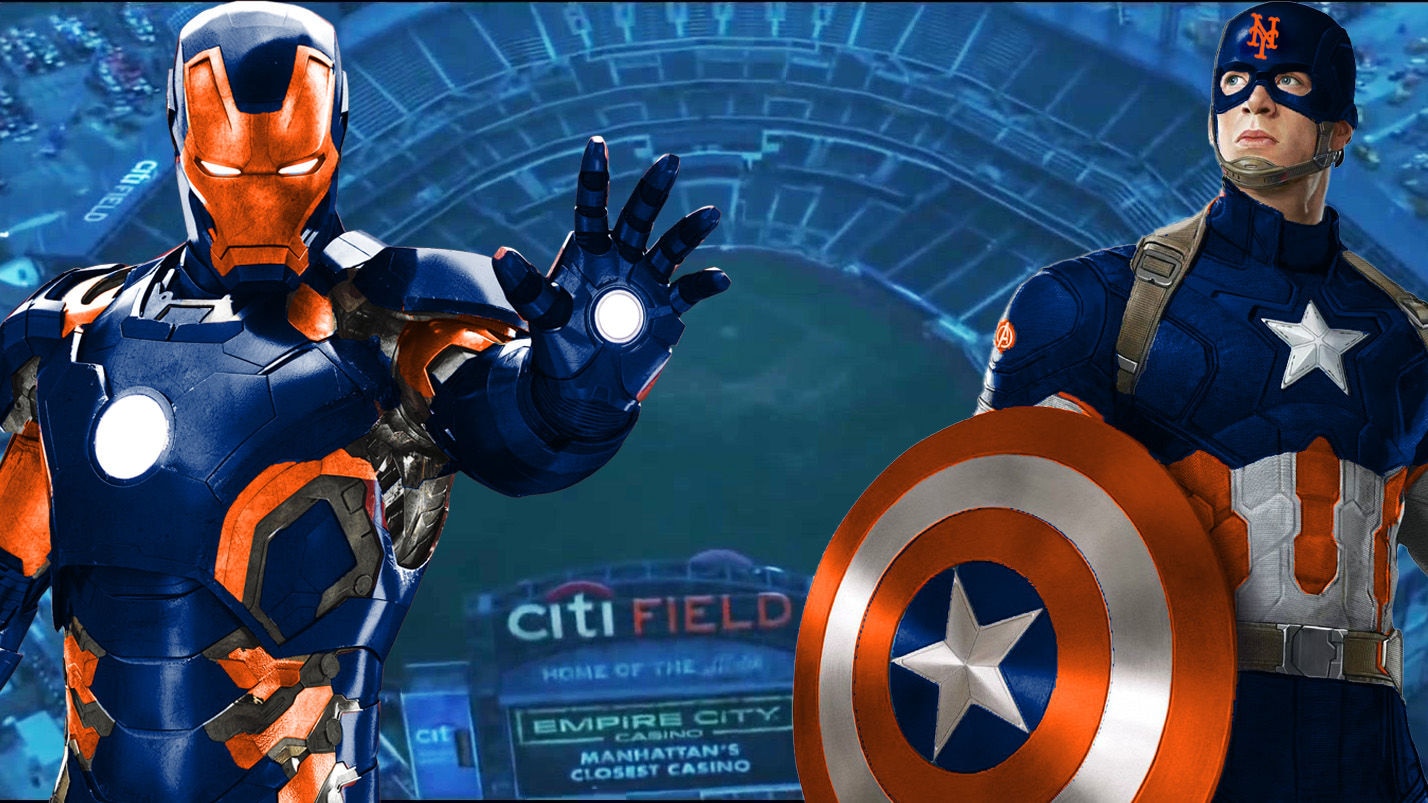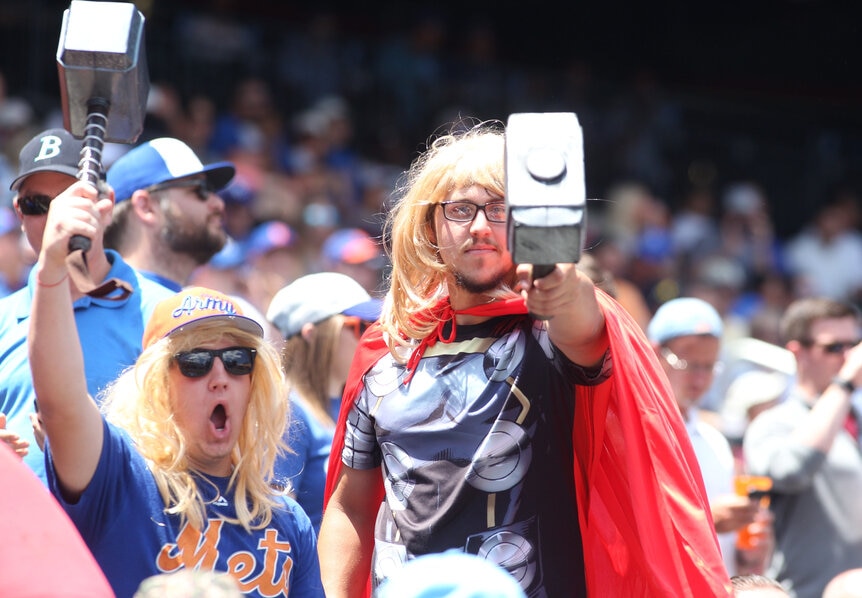Create a free profile to get unlimited access to exclusive videos, sweepstakes, and more!
Avengers: Endgame's pit stop at Citi Field was a perfect Mets moment

At the darkest moment, when all appeared lost and devastation permanent, there it appeared: Citi Field, in ruins, a wrecked monument to more fun and hopeful times.
The shot comes as the bird’s eye camera surveys the destruction near the beginning of Avengers: Endgame. For a lifelong Mets fan, it couldn’t have been a better metaphor. Citi Field, the Mets’ home in Queens for the last decade, has largely hosted disappointment and pure chaos, just as Shea Stadium, its predecessor, was the site of mostly dysfunction and grief. The Mets are famous mostly for their ineptitude, and if it were possible, the team’s owners would have somehow found a way to accidentally snap the Infinity Gauntlet on their own players instead of on-field rivals.
They have a pitcher nicknamed Thor, and young Peter Parker has Mets banners in his Queens bedroom, but historically speaking, the Mets’ Marvel Cinematic Universe equivalent would be the Guardians of the Galaxy… but before they truly helped as a unit. Ragtag and loveable, but slow and rash and generally incompetent.
**Spoiler Alert: There are very light spoilers for Avengers: Endgame below**
Just showing the half-rubble remains of Citi Field was enough of a gag (intended or not), but directors Joe and Anthony Russo went even further. The view of the ballpark was actually an establishing shot, and when they cut to inside the remaining structure, Steve Rogers, without any of his Captain America gear, is leading a grief recovery group conversation.
At this point, I was cackling, which was a bad look in a theater filled with journalists watching a somber moment, but I couldn’t help myself. The number of times I’ve sat in that ballpark, crestfallen and crushed, is too many to count, though I can still feel the sting of disappointment from so many individual experiences.
Now, watching my favorite baseball team lose in typically tragic and/or ridiculous fashion isn’t the same as seeing family members turn to dust in front of your very eyes… but maybe it’s not as far as you’d think. The Mets were handed down to me by my grandfather, and they were one of the touchstones of our relationship, up until his death this winter. I’ve welcomed the team into my home no matter where I’ve lived over the years, and even worked for the Mets at Shea Stadium for a summer back in college.
Frankly, I know way more about their players than I know about any of my cousins, and check in on their wellbeing far more than any of my siblings’. I’m not saying that’s a good thing, but it’s the reality.
The few times that the Mets have made the playoffs in my lifetime, they’ve generally lost in heartbreaking fashion. Wasted performances from aces and game-saving catches from outfielders; called strike three with the bases loaded on an unhittable curveball; blown saves in the World Series (this has happened a lot). It’s been the kind of stuff that sends you into a daze, walking around like Lebowski Thor in his hideout with Korg. Mets fans are conditioned to expect disappointment, and trade memories about each failure like old war stories.
During the group discussion, Joe Russo cameos as a man who is grieving the loss of his loved ones. He talks about trying to date again, but neither he nor his date can stop their random bursts of tears and sadness. It seems futile. But the story takes a twist; in between their sobs, they manage to have some fun, and agree to go on a second date. It’s a glimmer of hope — something Mets fans also understand.
The Mets spent their first six seasons, starting in 1962, as the absolute worst team in baseball, setting the record for most losses in their initial run and not getting much better in the half-decade after that. But they had some great young players come up through the system, and in 1969, they took the league by storm in the second half of the season. They won the World Series, became known as the Miracle Mets, and nearly repeated the feat in 1973, when their closer, the very quotable Tug McGraw, coined the phrase “Ya Gotta Believe!” The team has used it ever since.
Every time the Mets have success, it seems like they’ve defied the odds, like some group of ragtag heroes standing up to a super-villain (the Yankees, known as the Evil Empire, are also Thanos). That’s the kind of hope that Cap was trying to instill in the people in his group. As an old Brooklyn guy, he probably gets it, too — the Dodgers were almost always runners-up, and the Mets took their place during Cap’s deep freeze. It’s also the indomitable spirit he wants to lend to his Avengers teammates. Luckily, their largest ally, the Hulk, is far more intimidating than Mr. Met.



























